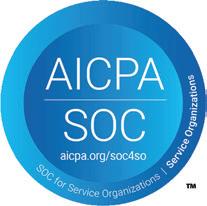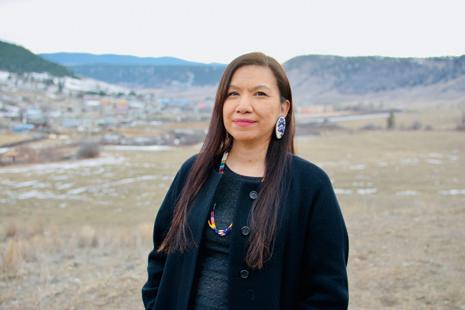CAREER STARTERS MENTORSHIP


Make meaningful connections
Matching early career lawyers with experienced professionals. Participants and mentors apply by October 31.
cbabc.org/mentorship




Make meaningful connections
Matching early career lawyers with experienced professionals. Participants and mentors apply by October 31.
cbabc.org/mentorship

OCTOBER 2023
Volume 35 | Number 5
From the President
4 Opening Up About Mental Health
Scott Morishita
Executive Director
5 Reaching Equal Justice — 10 Years Later
Kerry L. Simmons, KC
Indigenous Matters
16 A New Generation of Equal Justice Warriors
Jamie Maclaren, KC
PracticeTalk
24 Erasing Barriers to Justice
David J. Bilinsky
Nothing Official
29 The Summer of Climate Hell
Tony Wilson, KC
Isabel Jackson, Committee Chair
Editorial Committee
Emma Abdjalieva John Caldwell Salim Visram Ozge Yazar
Tonie Beharrell Demola Okeowo Miranda Wardman Lily Zhang
Deborah Carfrae, BarTalk Editor
BarTalk is produced on the traditional and unceded territories of the Coast Salish peoples, including the Musqueam, Squamish and Tsleil-Waututh Nations.
BarTalk is published six times per year by the Canadian Bar Association, B.C. Branch (CBABC) and is available at cbabc.org/bartalk. This publication is intended for information purposes only and is not legal advice.
CBABC supports more than 7,600 members in British Columbia. We connect our members to the people, knowledge and skills they need to successfully practice.
BarTalk enquiries, suggestions and letters to the editor: Canadian Bar Association, B.C. Branch 915 — 700 West Pender Street Vancouver, B.C. V6C 1G8
Membership Enquiries membership@cbabc.org
Contact Updates data@cbabc.org
t: 604.687.3404
tf: 888.687.3404
e: bartalk@cbabc.org
Advertising ads@cbabc.org
© Copyright 2023 The Canadian Bar Association, B.C. Branch
BarTalk Publication Sales Agreement #40741008


Lawyers are struggling with their mental health.
In October 2022, the National Study on Wellness in the Legal Profession released its findings.
According to the study, 57% of us have experienced psychological distress, 56% have experienced burnout symptoms, 28% have experienced moderate to severe depression, 36% have experienced anxiety and 24% have had suicidal ideation.
For many, including myself, the findings of the study were alarming but not surprising.
I experienced mental health issues early in my career as a lawyer. In retrospect, I had likely been living with undiagnosed depression from the time I started university. My experience with depression included feelings of sadness, hopelessness, moodiness, lack of motivation, lack of self-compassion, fatigue and periods of self-isolation. There was also a lot of shame and fear. Shame about not being able to “snap out of it” and fear that I would be exposed and then subjected to stigma.
Matters came to a head in the summer of 2007, shortly after I completed my articles. I had burned myself out and my mental health declined to the point where it was impacting my work. Although I was working long hours as a firstyear associate, I was getting very little work done. I was paralyzed by indecision. Tasks that should have taken an hour to complete would take a day. My work quality
suffered. When I wasn’t at the office, I tried my best to avoid family and friends as much as possible. I was spending an inordinate amount of time and energy trying to appear like everything was okay. But I was not okay.
Back in 2007, I would never have imagined that in 2023 I would not only still be in the profession, but I would hold a leadership position. Yet here I am, still a lawyer (and loving it) and writing my first BarTalk column as the CBABC President 2023/2024.
It was a long journey getting to where I am now. It wasn’t easy and I needed a lot of help along the way.
Back in the summer of 2007, most days were bad days. However, I
depression has been in remission for almost 10 years and my life is much different from what it was in 2007.
I’m fortunate to be at a point in my life and career where I can speak openly about my experience with mental illness and not face any (or many) negative consequences. Others in our profession are not so lucky. When I was elected CBABC President I committed to using my position of privilege to raise awareness about mental illness in our profession and to be an advocate for change. I should note that I am not a mental health professional, nor am I an expert in mental health policy. I am simply a person with lived experience, a platform and a strong desire to be a part of the solution.
would on occasion experience days that weren’t so bad. Fortunately, on one of those days I mustered up the courage to contact Derek LaCroix, KC at the Lawyers Assistance Program. That first call with Derek was the start of my path to mental wellness. I’ll write more about that path in a future column, but for now, I’m happy to report that my
The CBABC has long been a leader in our profession in promoting and advocating for mental wellness. I look forward to sharing more with you about the work the CBABC is doing on this front, along with my own thoughts about how we can effect change. I’m also looking forward to engaging with the profession over the course of my term on this and other important issues. In the meantime, I encourage you to check out cbabc.org/wellness
Scott Morishita president@cbabc.orgI was spending an inordinate amount of time and energy trying to appear like everything was okay.


In the fall of 2013, CBA released Reaching Equal Justice: An Invitation to Envision and Act (bit.ly/bt1023p5-1), a complete and detailed framework for moving toward equal justice. It made over 30 recommendations to engage and inspire us to reach a state in 2030 where Canadians could protect their interests and were empowered to manage their own legal matters with a strong emphasis on prevention. Everyone, regardless of income, region, age or any other factor, should have equal access.
In B.C., we are making incremental progress toward many of those goals. There is an Access to Justice Centre for Excellence at the University of Victoria. Law students are learning about access to justice before graduation. Access to Justice BC established a connection point for A2J leaders in B.C. to identify ways to collaborate. Innovation includes consultation with the people our systems intend to serve. Many entities in B.C. provide information to the annual report on Canada’s Justice Development Goals. These are just a few areas of progress.
Sadly, where we are making very little progress is in legal capability training and legal aid funding.
Legal capability training refers to law as a life skill that is shared through public education curriculum and embedded in workplaces and communities for specific groups at particular stages (young adults entering the workforce, new relationships, retirement, newcomers to Canada). Understanding basic legal principles and the law around employment,
family, and tenancy law as well as how to prevent and resolve problems and where to get legal help can prevent or reduce many legal problems.
Reaching Equal Justice set a target that by 2020, Canadians living at or below the poverty line would be eligible for the full coverage of essential public legal services. By 2025, Canadians whose income is two times the poverty line would be eligible for full coverage of essential public legal services. “Essential” refers to the legal problems that put a person or their family’s security, health, employment, housing or ability to meet the basic necessities of life at risk. It includes children’s residency and child support.
British Columbia is the only province in Canada (bit.ly/bt1023p5-2) that does not provide legal aid for routine family law matters. In contrast, other provinces offer significantly more coverage. Ontario, Alberta, Nova Scotia, Saskatchewan, Manitoba, New Brunswick and Newfoundland all provide coverage for divorce, parenting disputes, and spousal and child support. In addition, Ontario and Manitoba also have retainers for out of court settlement processes such as mediation or collaborative law.
In its annual submission to the B.C. Standing Committee on Finance, CBABC again recommended that government provide sufficient funding to restore this area of coverage. The Committee endorsed that
recommendation, as it has in previous years. What remains to be seen is if the government makes that investment, which would benefit many British Columbians. A significant investment would truly improve on access to justice for families.
The Honourable Robert Bauman, retired Chief Justice of B.C., oversaw the launch of Access to Justice B.C. back in 2014. Establishing that entity was one of the steps recommended by Reaching Equal Justice. He chaired it throughout the next nine years encouraging justice system participants to remain committed to improving access to justice in British Columbia. As he said in 2017, “There must be more support, education and truth-seeking.”
This month’s BarTalk explores the many ways lawyers are breaking barriers to justice. As the Chief Justice said in an address in February 2020, “Advocacy is a response to society’s challenges; in the face of a difficult problem, a good advocate shows us a way forward, and explains why we should take it. Going forward, I hope more and more lawyers will use their advocacy skills to take up the challenge of making our system more equitable and just.” Let us keep up that work.
Kerry L. Simmons, KC ksimmons@cbabc.org
The rights of children to be heard in family law proceedings is enshrined in the Family Law Act (FLA) under the best interests of child framework at s. 37 (2)(b). Children presumptively have a right to have their views taken into account. Currently, children’s views are most often expressed by snapshot in time reports such as a Views of the Child or Hear the Child Report — with judicial discretion on other options for how a child’s views/evidence will be received by the court. Not every child may wish to be heard or involved in decision-making that will impact their lives, but every child that is capable of forming their own views has a right to be heard with due weight being given to those views according to the child’s age and maturity under Article 12 of the Convention on the Rights of the Child. Article 12 (2) further states that “the child shall … be provided the opportunity to be heard in any judicial and administrative proceedings affecting the child, either directly, or through a representative or an appropriate body, in a manner consistent with the procedural rules of national law.”
Despite the participatory rights envisioned under Article 12, section 203 of the FLA circumscribes the right to have counsel appointed by making it contingent on a finding that “the degree of conflict between the parties is so severe that it significantly impairs the capacity of the parties to act in the best interests of
the child.” Confining a child’s access to counsel to an assessment of the parent’s conduct derogates from the rights of the child to be heard in a participatory manner consistent with their expressed wishes. In highly contentious and protracted parenting disputes where repeated applications are made to the court on matters that will impact the child — snapshot in time reports fall short of accounting for changes in the child’s circumstances and therefore, significantly limit the child’s right to be heard and fully participate. If a child expresses an interest in participating through a representative, then any assessment about the appointment of a child’s lawyer should consider that child’s best interests only. A child’s lawyer has the ability to positively contribute to decision-making from the perspective of the child as the matter progresses especially when parents present polar opposite viewpoints on the same issue.
Opposition to a child’s lawyer often stem from disputes where allegations of parental alienation vs. legitimate estrangement are at issue or in cases involving family violence. These cases are complex and indeed a child’s views may be adversely impacted by parental influence. However, there are safeguards imbedded in the FLA that allow for the child’s views to be
considered as one factor in a holistic assessment of a child’s needs and best interests. Any concerns with undue parental influence or harmful conduct can be mitigated by tendering other evidence that informs decision-making on what is best for the child in the particular circumstances. In these more complicated cases where difficult decisions must be made, the child’s lawyer may assist in helping the child understand the proceedings underway and assist in fashioning a remedy that minimizes the actual harm caused by completely disregarding the child’s perspective.
Parents are often in family court because they cannot agree on decisions that would be best for their child. The child’s lawyer can play an invaluable role in ensuring that the child’s views and preferences do not get lost in the contest over the needs of the parents. Importantly, by ensuring the court has current evidence of the child’s perception of their needs and by giving effect to their participatory rights, this enables the child to have an independent voice when they need it most.
There continues to be a checkerboard pattern in law on the approval of counsel appointments for children. But, with recent increases in funding to the Society for Children and Youth of B.C., advocacy support for children, including legal representation is on the rise, in keeping with the right of children to be heard and participate in decisions that will impact their lives.
Distinctive disputes should be determined by specialized adjudicators. Additional procedural tools should be afforded to parties where the issues to be determined are more complex.
During my pre-law years, the Ontario government began transferring the adjudication of accident benefits disputes from the Financial Services Commission of Ontario (“FSCO”) to the Licence Appeal Tribunal (“LAT”) — a tribunal that was also overseeing the issuing of licenses to liquor establishments and real estate brokers.
In my view, this transition unnecessarily set aside years of valuable experience accumulated by FSCO mediators and arbitrators who had become very familiar with insurance policy wordings and regulatory interpretation. There are parallel comparisons between the LAT and the Civil Resolution Tribunal (“CRT”).
At the CRT, the categories of claims that the tribunal handles are distinctly diverse e.g., (1) disputes between a party involved in a motor vehicle collision and ICBC (i.e., over entitlement to Part 10 benefits or allocation of fault when determining vehicle damage coverage), (2) civil disputes below $5,000, and (3) strata property related claims.
As a practitioner who has provided coverage opinions on disputes with ICBC and acted as defence counsel for various strata corporations, it is my experience that these two entirely separate areas of law cannot be practically adjudicated in a manner that

is “accessible, speedy, economical, informal and flexible” without specialized mediators and adjudicators.
A speedy and economical approach to resolving a dispute often comes at the cost of procedural fairness. The manner in which a $500 debt claim is determined should not be the same when adjudicating a $1 million strata related dispute.
At the CRT, there are limited ways a party can compel document disclosure, examine witnesses under oath, and anticipate deadlines to deliver expert reports.
In the court system, an expert witness has a duty to the court to be independent and not to be an advocate for any party. The expert’s evidence can be tested for its admissibility, reliability or weight based on assumed facts, methodology or qualification. By contrast, the filing of a report to the tribunal is done with one simple click of the mouse.
A less known difference (even among lawyers) is that most of the CRT decisions will be final in nature (see Dolnik v Strata Plan LMS 1350 re: patent unreasonableness standard). This means that strata related claims worth millions of dollars will generally be decided on a final basis by a tribunal at first instance, without the
benefit of examinations for discovery and examinations of witnesses and experts.
Moving on to Part 10 benefits disputes, the method to calculate first party compensation depending on whether injuries are minor, non-catastrophic or catastrophic are entirely different and can be extremely confusing for even legal counsel to perform — let alone a self-represented litigant.
By passing the Civil Resolution Tribunal Act, the B.C. Legislature granted the CRT exclusive jurisdiction to adjudicate certain categories of disputes and a high degree of deference in how it arrives at its decision.
Despite these powers, the issues to be determined by the CRT are not necessarily less complex than those before the courts, while the ability for parties to access legal representation, compel documentary disclosure, and test the reliability of evidence and testimony have been markedly reduced.
A way to offset this hurdle is for the CRT to have specialised tracks and decision-makers with greater specialized expertise. Another way is to expand the procedural tools available to the parties when the issues in dispute become more complicated / quantum of the dispute is comparatively high.
An imperfect system that needs to evolve
September marks the beginning of a new CBABC membership year of advocating for legal reforms, shaping policies and working to establish an equitable legal system. We also welcome a new session at the B.C. Legislative Assembly. Here are some recent highlights.
In August, the Standing Committee on Budget and Finance released their conclusions from the B.C. Budget 2024 Consultations (bit.ly/bt1023p8-1), in which they echoed our recommendations to government to fund family law legal aid. This would enable low-income British Columbians to access legal aid representation for typical family law matters, such as child support, division of assets and debts and parenting arrangements.
Following a CBA submission (bit.ly/ bt1023p8-2) to the Prime Minister, CBABC delivered a letter (bit.ly/bt1023p8-3) to the federal Minister of Justice urging the Canadian government to re-establish the Judicial Advisory Committee in B.C. and to fill the then-13 vacancies on the Supreme Court of B.C. In late August, the Committee was re-established and a few more judges were appointed. We encourage seasoned lawyers to apply.
CBABC prepared a submission to the Ministry of Attorney General setting out our concerns and recommendations regarding notaries’ desire to expand their scope of practice into trusts and estate administration. We are grateful to our members in Wills & Trusts Sections for their role in its development.
\ EMAIL: ADVOCACY@CBABC.ORGIn advance of the second phase of the B.C. government’s review of the Family Law Act, our members prepared submissions on the processes for section 211 reports and judicial case conferences. These were informed by our consultations with lawyers, psychologists, counsellors, social workers and judges.

This fall, CBABC launched a new educational resource, A Lawyer’s Guide to UNDRIP. Coupled with our Advancing Reconciliation PD Series (bit. ly/bt1023p8-4), the Guide will help lawyers better understand how they can apply the United Nations Declaration on the Rights of Indigenous Peoples and related legislation to their practice and advocacy work.
We recently responded to the B.C. Law Institute’s consultation paper (bit.ly/bt1023p8-5) on artificial intelligence and civil liability, outlining our concerns and making recommendations on how to update tort law to address harm caused by AI systems.
CBABC is working on our next Agenda for Justice 2024, our recommendations to the B.C. government for law and policy reform. We are currently engaging with members to gather their thoughts. When finalised, we’ll share this publication with all parties and candidates in advance of the next provincial election, currently set for next October. Read our previous Agenda for Justice 2021 at cbabc.org/A4J
Discussions around the “economics of justice” or the “cost of justice” typically focus on the cost of retaining a lawyer, the cost of attending trial and missing work. It is the price an individual must be willing to pay to resolve a legal issue and too often, that price is too high.

Economics of justice are typically framed around calls for a cultural shift in the justice system. The inevitable cultural shift relates to changing accessibility of the judicial process by way of digitalization. There appears to be a pervasive belief that if access to the legal system can be facilitated by way of a user-centred, online forum and innovative thinking then fewer individuals would be denied a meaningful resolution of their claims.
As a result, while the push for alternate forums has been extensive and in some ways impactful, in particular with the implementation of the Civil Resolution Tribunal and the Human Rights Tribunal (the “Tribunals”), the cost of justice has not fundamentally shifted. The reason for this is that at its core, access to justice is a social problem. The cost of retaining a lawyer is just a tiny drop in the bucket of reasons that collectively lead up to the need to appear before a judge or a tribunal member as a self-represented litigant.
There is a tendency to criticize lawyers for charging exorbitant hourly rates as the cause for an
increasing number of self-represented litigants, that is, the cost of retaining legal representation is too high and so people choose to deal with their claims on their own. However, what is absent from these conversations is the cost of sustaining a legal practice for the lawyers who charge an hourly rate. What is missing from these conversations is a discussion of whether there are systems in place to filter out vexatious claims that clog up Small Claims Courts or any of the Tribunals. Furthermore, there are no consequences that flow for filing frivolous complaints.
In general, problems with access to justice appear to be bigger than just
are more often than not seniors or immigrants who either do not have access to a computer or who do not know how to use a computer and therefore cannot use the Tribunals to aid in the resolution of their claims. They are unable to determine which forms to file in Small Claims and require extensive guidance from the Court Registry. More often than not, it appears that complainants at the Tribunals and claimants in Small Claims Court do not have a clear understanding about what constitutes a legal cause of action.
Instead of a call for further changes to the legal system whereby people are expected to navigate the legal landscape on their own, there must be a call for funding of social programs that create a community around the most disenfranchised. The cultural shift that is necessary here is one of providing a social safety net. Making our legal system more accessible or manageable by self-represented litigants is not the solution to the plight of increased litigation and dissatisfaction with society in general. The solution is in creating a society where people’s needs are respected, where the cause for pursuing litigation is minimized, and most importantly, where people feel supported by the systems in place.
the ability to commence a claim or file an online complaint. For example, clients who attend the Access Pro Bono Summary Advice Program
The cost of retaining a lawyer is just a tiny drop in the bucket of reasons that collectively lead up to the need to appear before a judge or a tribunal member as a self-represented litigant.


Restorative Justice (RJ) programs offer vital, effective alternatives to the traditional retributive, adversarial approach to criminal or harmful behaviour — yet remain underused by counsel and other criminal justice stakeholders across British Columbia.
RJ describes a wide range of theories, practices and processes intended to function as an alternative or complement to the existing criminal justice system to deal with harmful conduct and its impacts. RJ seeks to repair harm to individuals and communities by providing an opportunity for those involved or affected by the harmful conduct (or “crime”) to discuss the circumstances, causes, and impacts of the conduct, and to address the needs of the individual and communities involved.
While RJ takes many different forms, all require the full participation of the victim and offender, in the spirit of relationship-building, reconciliation and developing agreement around the desired outcome. In addition to victims and offenders, RJ programs also generally involve their respective networks, justice agencies and members of the community, and sometimes spiritual or religious leaders.
General RJ principles include:
1. Crime is a violation of people, communities and relationships rather than a violation against the sovereign, the state or the law;
2. Victims and communities are integral to dealing with crime, as their
perspectives and needs are key in addressing such harmful conduct;
3. Communities have a responsibility for the well-being of all their members, including victims and offenders; and
4. All human beings (victims and offenders alike) have dignity and worth.
The benefits of RJ are numerous, including the fact it may respond more effectively to frustrations with the conventional criminal justice system than criminal prosecutions. For example, sexual violence is underreported, and survivors often express that the investigative and prosecutorial processes are themselves harmful and disempowering. In contrast, research suggests that victim participation in RJ may help improve their psychological wellbeing by reducing symptoms of PTSD and stress. This may be because RJ places greater emphasis on victim participation and choice in the process than typical of conventional criminal prosecution cases. Additionally, research suggests that as many as one in four victims of sexual assault are interested in RJ.
An RJ approach is also effective in other ways. Twenty years of Canadian data show that RJ leads to greater victim and offender satisfaction than in the traditional court system, and that offenders are more likely to comply with agreements
reached through RJ than through court-ordered restitution. Further, RJ is significantly less expensive than prosecutions, although this may be partly owed to the fact that RJ programs are often volunteer-run. Nonetheless, RJ has proven to be effective, and its broader use has been strongly encouraged by the Supreme Court of Canada as early as 1999 in R. v. Gladue.
At the pre-charge stage, police can make referrals to community accountability programs, of which there are 42 in B.C. If charges are laid, Crown and defence counsel should consider whether their cases are appropri-

ate for RJ, what programs may be available in their area, and how to best advocate for an RJ diversion. We invite all practitioners to learn more at CBABC’s upcoming webinar, “Restorative Justice in the Legal Landscape (bit.ly/bt1023p11-1),” led by Gillian Lindquist, executive director of Restorative Justice Victoria and Clare Jennings, Crown counsel, which will take place during RJ Week in November 2023.
For additional information on the RJ programs available in your area, please go to bit.ly/bt1023p11-2.
Diana Sepúlveda and Tim Dickson are part of the CBABC Restorative Justice Working Group, whose mandate includes raising awareness of restorative justice within the legal community and increasing knowledge and use of RJ among criminal justice stakeholders.

Discussions around access to justice are generally focused on the court system and how to make it easier and more affordable for the public to access the courts. This is massively important, but the courtroom is not the only way to access justice. Mediation is an excellent alternative option that provides an efficient and cost-effective means to resolution. Through my practice as a mediator, I have seen many advantages to resolving matters outside the courtroom.
A mediation allows the parties to meaningfully discuss their dispute in front of a neutral party in a setting that is far less structured and intimidating than a courtroom. I conduct many mediations by Zoom with parties participating from their lawyer’s office or their living room. Even when mediations are conducted in person in a boardroom, it is far more comfortable to be eating chocolate almonds and catered lunch at a host office than entering a courtroom with a sheriff, lawyers and judges in robes.
In a mediation setting, the parties can explain their positions and their feelings in plain language without worrying about opposing counsel or a judge seizing on a stray word to their detriment. If there is something they do not want to discuss, they do not have to. The simple opportunity to speak their truth to the mediator is of tremendous value to many parties. I have seen parties be willing to make massive concessions after doing nothing more
than explaining their point of view because they feel heard.
While a mediator is not a judge and will not be able to decide the dispute, in many ways a resolution reached through a mediation can be more satisfying than a court decision.

There is significant advantage to a resolution that the parties have crafted themselves, rather than the risk and uncertainty of a decision imposed upon the parties by the court. At a mediation, the parties are in charge. As the mediator, I tell each party that I cannot make any of them do anything. I suggest, encourage, cajole, and occasionally am reduced to
Mediation is massively more costeffective and timely than court. I book many mediations within weeks of an initial inquiry as to availability. This is obviously preferable to trying to book a trial date eighteen months out through a phone lottery system. Similarly, the costs of a one-day mediation shared between the parties is magnitudes less than the costs of proceeding with trial.
An indirect benefit of mediation is that it can also improve access to justice by alleviating pressure on the court system. Every dispute that is resolved through mediation is one less dispute that will require court time and resources. Many disputes simply cannot justify the amount of time they would take if they were to be heard by a judge. Mediation is exceptionally effective at removing those disputes from the court system.
begging, but fundamentally the parties have the power to reach a resolution that satisfies their objectives and meets their willingness to compromise. This dynamic empowers the parties to take control of their dispute and increases the chance they are satisfied with the outcome.
Of course, mediation is not a panacea. A properly functioning justice system must allow litigants who seek their day in court to have it. While I firmly believe that an overwhelming percentage of cases should resolve in mediation, I still spend time at almost every mediation reminding parties that they do not have to settle. Mediation cannot replace the courtroom in every situation, but it is a great choice — and the right choice — in the majority of cases.
Mediation is massively more cost-effective and timely than court.V. VICTORIA SHROFF
Under the law, animals are property, they are owned. But the outdated property paradigm fails to serve animals or humans.
Animals are subjected to a legally allowable range of barbaric activities like trophy hunting, killing “death row” dogs, fur farming, and more, all because of their classification as property.
Challenging the status quo is to recognize that animals need to be lifted out of the property cage in order to break down barriers to justice for all living beings. Modernized laws should treat animals as living, sentient beings with thoughts and feelings, as someone, not something. (For a deeper dive, see TEDxCapilano U — Why Animals Need Law at bit.ly.bt1023vs1).
Working in a Vancouver law firm dedicated to animal law for over 20 years made it clear to me that a pro bono animal legal clinic would be a tangible way to break down barriers to justice for animals and their humans. Many animal law clients are low income and need pro or low bono legal services for themselves and their animals, but they were very underserved. This access to justice barrier was untenable.
The Honourable Robert Bauman, retired Chief Justice of B.C., quoted
in the textbook Canadian Animal Law (bit.ly/bt1023vs2), outlined his thoughts on access to justice and animal law:
“
The rule of law requires that ordinary people can access the justice system to enforce their rights;... This is so in all areas of law, and the law relating to animals is no different.”

A pro bono animal law clinic was sorely needed for access to justice.
Pieces to the access puzzle began to fit together when years ago, co-adjunct professor, Amber Prince and I, recast the animal law course at UBC’s Allard School of Law making it eligible for the social justice stream. Not long after, we both worked on a significant animal law appeal that brought access to justice for animals and their humans into national focus, Santics v. Animal Control Officer for the City of Vancouver, 2020 CanLII 1843 (SCC). Punky Santics’ death row dog case went up to the Supreme Court of Canada (sadly, leave was denied). Facing multiple barriers to accessing justice, it would have been helpful if the Santics family could have had access to a free animal law clinic instead of being unrepresented at trial.
In 2018, we began discussions with the Law Students Legal Advice
Program (LSLAP) and by 2019, a concrete plan was formed to open a specialty animal law pro bono clinic deploying law students as clinicians who could run the new clinic. I agreed to stay on as a volunteer.
By 2020, Canada’s first Animal Law Pro Bono Clinic (ALPC), was launched at LSLAP. It was a proud moment helping our first law student tackle their first file three years ago. I continue to volunteer as the ad-hoc animal lawyer to our student clinicians and am gratified seeing lowincome folks getting much needed animal law help on “dangerous” dog cases, emotional support animal matters, cruelty cases, human rights and tenancy cases and more. Students obtain practical experience while serving a community need, breaking down barriers to justice. The ALPC is an unbridled access to justice victory.
We are looking forward to celebrating the 3rd anniversary of the groundbreaking ALPC in autumn 2023 with B.C.’s Attorney General, The Honourable Niki Sharma, KC, who will be attending to say a few words. (In autumn 2021, The Honourable Chief Justice Robert Bauman made a speech at Allard to help us mark the 1st year of LSLAP’s ALPC.)
Recently, I was appointed to the CBABC’s Access to Justice Committee where I hope to continue to help break down barriers to justice for animals and humans.
CBABC promises to connect you with the people, knowledge and skills needed for your practice. Our network of Section volunteers is essential to how we make this happen every year. This summer, your Section Executives were busy identifying topics, expert speakers and networking opportunities for the term ahead. Check out the list of programs and secure your spot by visiting cbabc.org/events
CBABC Sections cater to specific legal interests and practice areas, there’s something for everyone!
Joining a Section connects you with like-minded people and offers access to practice expertise. Engage with this vibrant community and unlock the many benefits of Sections by updating your Section enrolment today at cbabc.org/enroll
We are excited to bring back some of our most popular events. These activities offer invaluable learning opportunities and fun chances to connect. Here’s a peek at what’s in store:

Get inspired by the people you work with at our fall launch events for the Women Lawyers Forum
and Immigration Law Section. Attend these events to reconnect with new and familiar colleagues over good food, timely topics and conversation.
The Aboriginal Lawyers Forum Holiday Banquet, Maritime Law Dinner, and the “For the Love of Litigation” Dinner are more highlights on the calendar to connect with industry leaders and expand your network.
Some Sections host monthly meetings, whether it be an informal roundtable, a speaker presentation, or an after-work drop-in. Want to take advantage of this opportunity?
Sections like Immigration Law, Maritime Law, Women Lawyers and Young Lawyers have exciting sessions coming up.
Labour Law plans to bring back their Annual Bear Pit. Enjoy a lively and informative session with featured speakers from the Labour Relations Board. Explore the latest issues, hear from the experts, and get your questions answered.
Register early for our sell-out Master Shadowing programs hosted for the Vancouver Island, Okanagan and Lower Mainland regions. Early career lawyers enjoy a pre-Chambers dinner with a Master, a full day of Chambers shadowing, followed by an informative debrief session.
Section-led Conferences are another annual highlight for members. Gain your CPD credits from subject-matter experts at our Privacy, Immigration, Family, and Wills & Estates conferences.
Having wrapped up my fifth and final year co-chairing SOGIC (now SAGDA), I can look back and see the rollercoaster those few years have been for trans, non-binary and gender diverse inclusion. The first few years saw a rapid increase in visibility and explicit inclusion, long overdue steps in the right direction. For a fleeting moment, I nearly felt safe — at least in my professional life.
However, the last two years have undermined that. The reckless endorsement of misinformation, ridicule, hate and violence targeting trans people by public figures has emboldened and encouraged people to express and target their aggression at people like me. That hate is now amplified in policies, legislation and mainstream news.
It’s no surprise that when the floodgates of hate opened, the wave hit trans people first. It’s easiest to demonize those who are least understood and have little power. But we’re just the vanguard. Fortunately, during those earlier years, positive change demonstrated that most people are caring, loving and inclusive. We need to harness that now to beat back this wave of hate before it spreads any farther. Love always wins, but only if we never stop fighting for it.

Our SOGIC Section is now called the Sexual and Gender Diversity Alliance Section (SAGDA). SAGDA aims to address the needs of CBABC members with diverse sexual orientations, gender identities, gender expressions and sex characteristics. This includes members who are two-spirited, lesbian, gay, bisexual, transgender, queer, intersex, asexual and aromantic.
On September 19, SAGDA kicked off its term with a conversation about gender identity and expression, and sex-based discrimination complaints under the BC Human Rights Code barbara findlay, KC discussed the current wave of transphobia and the available legal remedies. For more information or upcoming events, visit the SAGDA Section page (cbabc.org/Sections/SAGDA).
Are you an internationally trained lawyer on the path to practising law in Canada? Have you successfully navigated the National Committee on Accreditation (NCA) process and want to build your network?
We are thrilled to introduce the Internationally Trained Lawyers Section, dedicated to connecting and supporting lawyers who are in the process of completing, or have completed, the NCA to practice law in Canada. The Section offers a forum for learning, connection and support to secure employment, adapt to the British Columbia legal landscape and focus on skills and knowledge development relevant to this group.
Sixteen months ago, Access Pro Bono’s Everyone Legal Clinic set out to do something new and different by way of the Law Society of B.C.’s Innovation Sandbox. It engaged 14 supervising lawyers and 25 articling students in launching a first-of-its-kind public interest law training clinic and incubator across 17 different B.C. cities and towns. Its mission was (and remains) to increase access to justice for all British Columbians, regardless of their identity, income or location, and to increase the diversity and legal aid capacity of B.C.’s legal profession.
The Clinic’s first-year cohort of articling students was 72% BIPOC and 20% Indigenous, which helped it to deliver free and low-cost legal services in culturally safe ways to hundreds of clients from underserved communities. Still, as a startup with a novel revenue structure and little institutional backing, the Clinic struggled at times to guarantee income security for each of its students. Thankfully, supportive law firms and organizations stepped up to provide scholarship and bursary funds to students in need. The
CBABC Aboriginal Lawyers Forum (ALF) was particularly supportive, as its Warrior Project funded scholarships for four of the Clinic’s firstyear Indigenous students.
The Warrior Project beneficiaries include Carolyn Belleau, who articled in her hometown of Williams Lake and who is now Legal Counsel, Self-Government and Treaty for Williams Lake First Nation. In her new role, Carolyn assists the

T’exelcemc to negotiate treaties with the provincial and federal governments. She also finds time to provide pro bono workshops on wills and estate matters for band members living on reserve. She credits her articling experience with reinforcing her strong pro bono ethic, and with showing her the importance of giving back to her community.
the support of ALF, my time in law school, and the invaluable guidance of the Clinic’s supervising lawyers.”
Lincoln Hallgren is a Warrior Project beneficiary who was born and raised in Burns Lake and who returned to his community of Lake Babine Nation to article with the Clinic. Now, as a freshly minted lawyer, Lincoln is working with Carrier Sekani Family Services to develop and deliver health, social and legal services in accordance with the needs and values of the Carrier Sekani Nations in north central B.C.
Lincoln had this to say about his Clinic experience, and the support he received from ALF: “Working at the Clinic showed me the immense gratitude people feel when they are genuinely heard and cared for, not just as paying clients, but as fellow human beings. I eagerly anticipate a brighter future, thanks to
Ashley Linttell is a Warrior Project beneficiary who, along with another Clinic alumnae, is starting a small family law firm that will serve legal aid clients in rural and northern B.C., particularly in Haida Gwaii. Her goal is to help families navigate complex legal issues with compassion and an appreciation for the systemic barriers they often encounter as they promote their interests in the legal system. Ashley views her ALF scholarship as having been crucial in supporting her legal journey, and her time at the Clinic as having bolstered her commitment to promoting access to justice for equitydenied British Columbians.
Other first-year Clinic alumni have opened solo and small firm practices providing legal aid and low-cost legal services in underserved communities like Ucluelet, Golden and Vancouver’s Downtown Eastside. As each new lawyer commits to serving unmet legal needs in the name of equal justice, the light of ALF’s Warrior Project shines a little bit brighter.
Access to justice hinges on equitable access to legal information. Funded in large part by the Law Foundation of BC, Courthouse Libraries BC (CLBC) maintains a dual mandate to lawyers and the public. We strive to eliminate barriers to legal resources for both groups.
CLBC’s Clicklaw platform is the lynchpin in our public-facing efforts. It’s a comprehensive directory of verified public legal resources from various bona fide providers. The website helps demystify law and direct users to community-based support through its HelpMap feature. It’s an essential tool for anyone you encounter who needs guidance but can’t be your client. At the very least you can point them to clicklaw.bc.ca
For you, the lawyers, CLBC offers many services designed to improve practice efficiency and make the business of law more affordable. We provide free access to law databases, free document delivery, no-cost CPD training and generous legal reference support. Soon we will offer free access to CSO E-Search too at our public access computers. Our Family Law Unbundling Toolkit is for lawyers who want to offer further affordability to clients that cannot manage the costs of full representation (see bit.ly/3LaRJH1).
With 30 branches, CLBC tackles geographical barriers too, ensuring people across B.C. can access essential legal resources. Our LawMatters program extends our reach even further by training public librarians and supporting collection development in legal topics, thereby raising legal literacy in communities large and small.
In essence, CLBC is more than a service to lawyers interested in access to justice; we’re a committed partner. We encourage all legal practitioners to explore our resources at courthouselibrary.ca and clicklaw.bc.ca.


Access to justice means different things to different people. To some, it means the right and the practical ability to access an independent and impartial decision maker who will resolve legal disputes according to the rule of law. To others, it means timely and affordable access to the knowledge, resources and services that enable people to deal effectively with legal issues in their lives. But no matter how you define it, access to justice often requires timely access to information.
On this score, our freedom of information laws are falling short.
Jurisdictions across Canada have enacted freedom of information laws that give everyone the right to timely access to information held by public bodies, subject to exceptions. These laws aim to promote transparency and accountability within government. But they also serve another vital purpose: promoting access to justice.
In many cases, people require timely access to information held by public bodies to formulate, develop and prosecute a legal claim effectively. For example, a prisoner who has suffered unlawful treatment by correctional authorities may require timely access to information about their treatment in prison held by public bodies. Likewise, Indigenous peoples who have suffered historical injustices may require timely access to historical records held by public bodies. The discovery process, which is slow, expensive, and potentially
unavailable depending on the circumstances, is no substitute for the right to timely access to information held by public bodies.
Despite the important role Canadian freedom of information laws can play in promoting access to justice, these laws have — for decades — failed to live up to their promise. At the federal level, the Information Commissioner of Canada noted in a 2015 report titled Striking the Right Balance for Transparency that information commissioners have persistently raised the issue of delay since 1983, and that a culture of delay exists across the access to information system. In British Columbia, the provincial information and privacy commissioner noted in a 2020 report titled Now Is the Time that between April 2017 and March 2020, public bodies exceeded the 60-day statutory response deadline in over 4,000 cases, leading the information and privacy commissioner to issue a “wake-up call” to government. The COVID-19 pandemic only exacerbated the longstanding issue of delay.
Change is needed — in policy and in culture — to promote access to justice through timely access to information. For example, policy makers in Canada should consider:
granting information and privacy regulators the power to order public bodies to disclose information or
take other appropriate steps in response to access requests;
granting information and privacy regulators the power to levy fines on public bodies that fail to comply with freedom of information laws;
requiring public bodies to seek express prior permission from the relevant information and privacy regulator for any extension beyond 30 days;
dedicating more resources to freedom of information request processing teams;
utilizing artificial intelligence and other technologies to increase processing speed, accuracy and efficiency;
removing overbroad or vague exceptions to the general rule requiring disclosure; and
simplifying and streamlining freedom of information laws to make them easier to understand, engage and apply.
Perhaps most of all, we need a culture shift within government — away from delay, toward timely access. While policy changes can encourage this culture shift, these changes must be accompanied by a deeper cultural commitment — across government — to timely access for the public good.
Increasing access to justice is one of the most pressing issues our profession — and our society — faces. Timely access to information can — and should — be part of the solution.



Do you have knowledge or experience that could be valuable for reforming the parentage provisions under part 3 of the Family Law Act or public hearings under the Local Government Act? Your comments will help inform BCLI’s next wave of consultations this fall.
Two BCLI projects will enter consultations this fall: Review of Parentage under Part 3 of the Family Law Act and Renovate the Public Hearing Project: Pre-Development Public Engagement & Legal Reforms to Support Housing Supply. The consultation on parentage will consider whether part 3 of the Family Law Act equally addresses children born through natural or assisted reproduction, protects the best interests of children, and promotes family stability.
BCLI’s consultation paper on public hearings will present possible options for improving public engagement on local-land-use bylaws, consider ways to better engage the public, streamline the public hearing process, and reduce both pre-development risk and barriers to housing.
Comments gathered from public consultations assist our project committees and staff in refining the final recommendations for each project. We look forward to your input. Please visit us at bcli.org to learn more about these projects and we invite you to sign up for our newsletter too!

The world stands on the precipice of a transformation powered by artificial intelligence (AI). Anyone who has used ChatGPT, since it was released in November 2022, knows the power of AI to free us from monotonous work and allow us to better direct our attention elsewhere. While we currently are witnessing early applications, AI has a long way to go. GPT-3.5, which many of us have used through ChatGPT, has 175 billion parameters (essentially, what the AI “learns”) — Wu Dao 2.0 has 1.75 trillion, and GPT-4 is estimated to be in the same ballpark.
But the point of this article isn’t to gawk at numbers. The point is to talk about how the technologies enabled by AI are going to change the landscape of the justice system.
Natural Language Processing (NLP, not to be confused with neuro-linguistic programming) focuses on enabling computers to understand, interpret and generate human language — essentially, to translate human language into data, and data into human language. What’s so interesting about this, from a legal perspective, is that law already is a set of rules expressed in language. Computers, as it happens, tend to have been very good, for a very long time, at producing results of certain rule sets (one could argue that’s all they do).
Current applications of NLP tend to be focused on document analysis, language translation and search. Harnessing NLP means more than paving the cow path — in an intelligent system, NLP can help decipher facts, explain law and frame issues. Advanced NLP systems will empower litigants and legal professionals to interact with vast amounts of data quickly and efficiently, and express themselves effectively.
AI creates significant scope for more efficient, cost-effective and accessible dispute resolution. Online dispute resolution (ODR) is more likely to become accessible and easily administrated, and legal information democratized. There will no longer be a requirement to attend a library for legal research or to hire a lawyer to help formulate factual arguments or provide an understanding of the law. Decision-makers may find themselves more effectively able to free themselves from the constraints of human language: with the assistance of AI, evaluating arguments and writing decisions on the basis of their internal logical structure, and the logic of external legal precedent, free from the flaws and nuances of an imperfect language.
In the same vein, legislation may cease to be written in complicated legal language, susceptible to
ambiguity, contradiction and interpretation that does not align with the original intent. Instead of being written, legislation may be “coded,” to be translated into human language as needed. Or equivalently, proposed legislation may be translated from human language into data, to be checked for absolute clarity, and to ensure the proposed law aligns with prevailing circumstances (e.g., is data-driven, and is the best way to achieve the legislative objective).
Human language has long been the bane of the justice system: an imprecise tool, used to create laws that aim at precision. We have a way to fix that, and as lawyers in British Columbia, we swore an oath to “conduct ourselves truly and with integrity” and to “uphold the rule of law and the rights and freedoms of all persons.”
As we move forward, we must anticipate AI being invaluable in removing many of the obstacles to access to justice that have plagued our societies, since formal justice systems began. The law will become readily available, in plain language, from anywhere in the world. You will no longer need a 3-year degree, and years of practice as a lawyer, to understand a small portion of the law that applies to you. To participate in the justice system, you will no longer need to be fluent in English, able-bodied, sighted, able to hear or able to read.
That’s a future worth fighting for.
Mental health touches all of us. According to the Canadian Mental Health Association, as many as 17% of British Columbians are experiencing a mental health or substance use issue today — you likely know someone who is living with mental health challenges. Yet, few people are aware of the legal structures or how to get help. It’s in this landscape that the Community Legal Assistance Society (CLAS), with support and funding from Legal Aid BC, offers representation to people detained under the Mental Health Act (the MHA). CLAS advocates, lawyers, and roster lawyers from the private Bar provide coverage across the entire province.
For many people living with a mental illness, the MHA is the most impactful legislation, as it permits involuntary psychiatric treatment. A person who is certified under the MHA is deemed to consent to psychiatric treatment as an involuntary patient, which typically includes detention in a hospital, taking oral or injectable medication, and being closely supervised by medical professionals even after discharge.
The medical professionals providing involuntary care come with the best intentions — but the involuntary patient experiences an extraordinary and intrusive exercise of state power on their liberty and autonomy. Once certified, they are no longer free to move and act, and may lose their choices in everything from important
medical decisions to what clothing to wear. Psychiatric medication can have powerful and uncomfortable sideeffects. Many who have been through the experience describe it as confusing, disempowering, or even traumatic.
However, the Mental Health Review Board (MHRB) provides for the independent review of certifications by an administrative tribunal. The MHRB’s mandate is to review whether an involuntary patient continues to meet the certification criteria, and if not, to decertify them — thus restoring their autonomy. An involuntary patient applying to the MHRB for a hearing may request representation from CLAS on the same application.
It’s an imperfect system with multiple procedural challenges. Timely review is important, so time frames for a hearing are often short, with hearings for most recently hospitalized applicants being set within 14 days of the application. The disclosure of medical records often comes only in the last few days before the hearing, with final disclosure and evidentiary submissions of the detaining hospital coming 24 hours before hearing.
Evidence at hearings is often complex, covering an intimate crosssection of a person’s life history. The presenting psychiatrist opposite the applicant often plays multiple roles, being an advocate for the facility,

an expert witness, and their treating doctor all at once.
This is not to mention the emotional weight of the process — it is no small task for a person to sit through a dissection of their life and decisions before a panel of strangers, even at the best of times.
It’s hard to imagine how daunting a task self-representation would be under these conditions. The value of having counsel present, to help the person understand their rights, present their case and feel heard, is critical. Not just to the fairness of the process, but also to that person.
The Charter of Rights and Freedoms requires that the individual’s right to liberty not be deprived except in accordance with the principles of fundamental justice. A key element of access to justice is having counsel to defend their autonomy and liberty, a point sharpened by recalling that these are people subject to detention and involuntary treatment through no fault of their own.
CLAS is proud to be a piece of the access to justice puzzle by providing representation at MHRB hearings. CLAS does more, too — mental health detentions are only one part of the work. The different CLAS programs provide advice or representation in spheres ranging from human rights and sexual harassment to judicial review and systemic work. We are grateful to our funders for resourcing our efforts.
SCOTT MORISHITA President Rice Harbut Elliott LLP Vancouver

PATRICIA BLAIR Director at Large River Valley Law Duncan
MICHELLE CASAVANT Aboriginal Lawyers Rep Department of Justice Canada Vancouver




LEE NEVENS First VicePresident Department of Justice Canada Vancouver
SARAH L. KLINGER Director at Large Law Office of Sarah L. Klinger Victoria
DAN W. MELNICK Young Lawyers Rep Clark Wilson LLP Vancouver



MYLENE DE GUZMAN Second VicePresident De Guzman Law Centre New Westminster
ADAM MUNNINGS Director at Large Munnings Law North Vancouver
MARK SEEBARAN EDI Rep Ministry of Attorney General Legal Services Branch, Victoria

JUDITH A. JANZEN Finance & Audit Committee Chair Onyx Law Group Vancouver


RANDY ROBINSON Director at Large Crown Counsel Chilliwack
 PUNEET K. KLAR
PUNEET K. KLAR

In a world often plagued by lengthy legal battles, that can come with soaring costs and emotional turmoil, the concept of justice can sometimes feel distant and elusive. Amidst the traditional adversarial legal system however, mediation provides an alternative pathway to justice. Mediation offers justice through collaboration and communication, achieving conflict resolution where the parties are directly involved in settling their disputes and where justice is not just a verdict. Arguably, mediation can deliver justice in a manner that traditional litigation often struggles to achieve.
Mediation is a process where an independent and neutral third party, the mediator, facilities communication between the disputing parties to reach a mutually agreeable solution. Unlike traditional courtroom litigation involving a trial and verdict, where one party loses and the other emerges as the winner, mediation seeks to find a common ground between the parties that satisfies the interests and needs of everyone involved. While everyone may not leave the mediation entirely satisfied, the inclusivity sets the stage for delivering justice in a manner that is comprehensive and sensitive to the unique circumstances and wishes of each party.
One of the key strengths of mediation is its empowerment of the
disputing parties. Rather than relying only on lawyers to represent their interests, the parties are given the opportunity to express their concerns directly. This empowerment can lead to a greater sense of ownership over the resolution process and the eventual outcome, promoting a deeper feeling of justice being served. Additionally, mediation encourages inclusivity by allowing for the integration of cultural norms, personal values, and unique circumstances that might not always find space in a traditional courtroom.
Traditional legal battles often harm relationships, causing lasting animosity between parties. Mediation, however, focuses on preserving or even restoring relationships. By promoting open dialogue and understanding, mediation can foster an environment where parties not only resolve their legal disputes but also find a way to coexist afterward. This outcome is particularly important in situations involving family matters, workplace conflicts and community disputes, where maintaining relationships is crucial.
Justice is not a one-size-fits-all concept. Mediation acknowledges
this by fostering creativity and flexibility in finding solutions. Parties are encouraged to think outside the box and explore options that might not be available through litigation. Further, mediation offers a more compassionate approach, providing a safe space for open communication and emotional expression. This together can lead to not only more tailored solutions, but also as a catalyst for providing a healing experience, and ultimately enhancing the overall perception of justice being served to the parties involved. In some cases, the parties themselves just want to be heard and the solution finds itself without the need for litigation.
While the traditional legal system has its merits, it is not always the ideal route to achieving justice, particularly in cases where preserving relationships and promoting collaboration are essential. Mediation stands as a powerful alternative, allowing parties to actively participate in conflict resolution. Through empowerment, inclusivity, restoration of relationships, cost efficiency and creativity, mediation has the potential to deliver justice in a manner that transcends the limitations of the courtroom. As people continue to seek more holistic and satisfying approaches to dispute resolution, the role of mediation in delivering justice is bound to grow.

r In a world where justice seemed so far, Barriers and hurdles, like an endless scar, A new dawn rises, breaking the night,Online Dispute Resolution, a beacon of light… r
— Music and lyrics by ChatGPT.
The pursuit of justice, a fundamental human right, faces obstacles in traditional legal systems: inefficiency, high costs, delays and limited access. The digital age introduces a transformative solution, Online Dispute Resolution (ODR), which enhances justice’s accessibility, efficiency and equity globally.
Albert Einstein’s words, “We cannot solve our problems with the same level of thinking that created them,” underlines the need for innovative approaches like ODR. Unlike conventional attempts, which resemble rearranging the deck chairs on the Titanic, ODR truly transforms the justice system. Here’s how:
Geographic distance is one of the most significant barriers to justice. An APEC Business Advisory Council (ABAC) survey of small businesses found 58% of respondents listed it as a “major” or “severe” problem, which rose to 74% in emerging countries. (ABAC, Realizing the Untapped Potential of MSMEs in APEC: Practical Recommendations for Enhancing Cross-Border Trade (November 2018) at iv, vi, 52, 54, 57, 68, bit.ly/bt1023pt1).
An international ODR platform that is enforceable in cross-border disputes would hold great promise in
addressing this problem, particularly where parties and evidence might be located in different countries. Article II and V of the New York Convention (bit.ly/bt1023pt2) lay down a uniform rule that can address the recognition and enforcement of an award (odrguide.com).
Traditional legal proceedings are notoriously costly, including lawyer fees, court fees and travel. ODR eliminates the need for physical appearances, travel and extensive paperwork. Parties can engage in dispute resolution online, saving time and money while still ensuring a fair and just resolution.
Asia-Pacific Economic Cooperation (APEC) Doing Business Report 2020, reported an average of 440 days to resolve a simple contract dispute involving a Micro, Small and Medium Enterprise in a domestic APEC court, at a cost of 37% of the value of the claim (apec.org).
Civil and family cases in Canadian courts have reached a crisis point according to The Advocates’ Society. They state that the worst delays are in Ontario, where litigants can expect to wait up to five years to have a dispute settled by a judge (bit.ly/bt1023pt3).
ODR platforms streamline proceedings, overcoming traditional constraints like court schedules and resource scarcity.
ODR offers confidentiality in sensitive cases, even in family and private matter disputes. This can encourage parties to engage more openly.
ODR platforms, exemplified by B.C.’s Civil Resolution Tribunal, guide self-represented parties, making justice accessible to those without legal backgrounds.
ODR methods include negotiation, mediation and arbitration, which cater to diverse disputes and parties’ preferences.
In conclusion, ODR revolutionizes justice by dismantling geographical, financial and procedural barriers. Empowering individuals to seek resolution, ODR transforms the justice system into an inclusive, efficient and affordable entity. Integrating ODR into the justice system, as done in B.C. with the CRT, heralds a new era. A new dawn may be breaking.
Email: daveb@thoughtfullaw.com
Blog: thoughtfullaw.com
Last published in 2009, this new edition continues to guide family lawyers through complex issues surrounding characterization, financial disclosure, valuation, methods of division, tax consequences and determination of Child Support Guideline income when dealing with business and trust interests as family property.
The 3rd edition of Financial Issues in Family Law incorporates developments in law and practice up to approximately June 15, 2023, with all new content reflecting the introduction of the Family Law Act and updates to the Supreme Court Civil Rules and Supreme Court Family Rules since the previous edition.
This book also includes both new and extended discussions of discretionary and contingent trust interests as family property, financial statement analysis, valuation dates, special shares, valuing a book of business, split pension amounts, non-arms-length payments, working capital and imputed income. Alongside the legal discussion, this book features a collection of checklists, sample financial statements, retainer and engagement letters, valuation reports for a sample retail company, holding company and sole proprietorship.
Financial Issues in Family Law will be available this December.


The Provincial Court of B.C. has made major systemic changes to address the challenges that many British Columbians experience in accessing justice. Despite these changes, the Bench is often challenged by the needs of self-represented litigants (SRL).
According to Judge Wishart, Associate Chief Judge of the Provincial Court of B.C., the question is “what can I do as a judge to put litigants in the best position to represent themselves in Provincial Court?” She identifies the following five areas where judges walk the tight rope between ensuring fairness and preventing the appearance of bias.
“SRLs are generally very nervous when appearing in court. This can impact their ability to focus on what it is they need to do to prove or defend their case. A lot of this nervousness comes from not knowing about court procedures. This includes not knowing how to present their evidence or smaller details such as where to stand and how to address the judge. Judges can make justice more accessible by explaining court procedures at a pre-trial conference or case conference about what happens at a trial and how evidence will be presented. A judge can take a few minutes at the start of a trial to explain how the trial will unfold and this can help put litigants more at ease.”
“Judges always have to be aware of
the perception of fairness particularly when dealing with SRLs. This can arise in the context of the role of the trial judge to control the proceedings and ensure the evidence presented is relevant. A judge may need to interrupt and re-focus a litigant and this might feel like the judge is preventing them from telling their side of the story, particularly if this only happens to one party.”
“Where a judge spends more time explaining procedures to one party this might be viewed by the other party as favouritism. This is particularly challenging when one party has counsel and the other is a SRL as a judge will likely spend more time explaining procedures to the SRL. This can be viewed by the represented party as the judge helping the self-represented litigant and “being on their side.”
“In family cases, SRLs not only have the stress of navigating the court system on their own, in many situations there is added emotional stress of dealing with a former spouse. Parties will often have some sort of ongoing relationship or at least communication in order to parent their children. An adversarial trial can negatively impact their ability to cooperate in the future. A judge
can take steps to make sure parties remain respectful of one another during court proceedings, even where there are disagreements and strong emotions. Dealing with SRLs presents a special challenge where there is a significant power imbalance or domestic violence.”
“In small claims cases, SRLs may not understand what evidence they need to prove or defend their claim and often look to the judge at the Settlement Conference for help. Although judges can assist parties by explaining court procedures, judges do not give legal advice and parties are left to try to get some advice or information on how to present their case. Judges spend time managing expectations both in terms of how long the process takes and what can happen even if a litigant is successful at trial — they may not get their money immediately (payments may be spread out over many months) or at all.”
Some of these challenges may be met by SRLs using unbundled services and alternative dispute resolution processes, which allow for a more collaborative approach to problem solving. Where lawyers are representing clients against an SRL, it is important for the lawyers to explain to their clients why the judge may appear to be “helping” the SRL and explain the judge’s role to ensure fairness in the proceedings.
For 54 years, the Law Foundation has worked hard to fulfill its legislative purposes; funding legal education, legal research, legal aid, law reform and law libraries in British Columbia.
In late 2022, the Foundation adopted new mission vision and mission statements to better reflect the ways in which it is approaching its mandated work as a justice sector funder:

This fall we break down complex topics into engaging and thought-provoking sessions to help lawyers advance their careers and stay ahead.
CBABC is proud to be part of Access to Justice Canada week this October, giving you opportunities to learn and participate in work being done in BC and beyond. On October 25th, explore AI as a tool for legal research with Open Access, Artificial Intelligence & Virtual Hearings: Access to Justice Research from the Edge

cbabc.org/A2J-AI >
Throughout October and November, distinguished LSBC benchers, CBABC County Representatives and volunteers gather in Victoria, Surrey, Nanaimo and Kelowna to lead engaging sessions on ethical considerations in your practice. These in-person, interactive workshops cover real-life ethical scenarios, relevant case studies and the vital Code of Professional Conduct for BC
cbabc.org/ethics >
Are you an early career lawyer looking for advice, tools and resources that can help you build a successful career path? Our Career Starter Series includes sessions that teach you how to develop networking skills to confidently build your practice community, how to manage debt, and financial planning steps to invest in your future.
cbabc.org/css >
CBABC is taking part in Restorative Justice week this November to raise awareness of the benefits of a relational, victim-centred response to crime and conflict. On November 22, plan to attend Restorative Justice in the Legal Landscape to learn how to seek beneficial resolutions for criminal defendants and their victims.
cbabc.org/RJW >
There’s a recent cartoon in the New Yorker where two frogs are sitting in a pot of hot water on a stove and the pot is getting hotter. One points to the temperature knob. The other says, “yes… but how can we be sure that the temperature increase was caused by man?” In another, one frog in the pot says to the other, “I know the water is slowly heating up, but I figure that’s the younger generation’s problem.”
This summer, Lahaina burned to the ground. I know two individuals who lost their homes in Lahaina. And although the loss of property is devastating, it’s agonizing to hear stories of those whose remains are now being discovered in cars where people burned to death trying to escape the inferno.
Closer to home, my relatives have a condo on Okanagan Lake in Kelowna. They sent me photographs from their balcony showing what the fire looked like across the lake in West Kelowna. Although they had just arrived, they immediately headed back to Surrey before the official evacuation order came. They said they were lucky that they had somewhere else to go. But others weren’t so lucky. Lake Okanagan Resort burned to the ground and close to 200 homes were lost or severely damaged. A day later, another friend on Shuswap Lake sent me photographs of the other side of the lake where the Scotch Creek fire raged, turning the sky bright red with flames. And then there’s Yellowknife, where 20,000 people were evacuated.
Serge Schmemann wrote an op-ed for New York Times in August titled, “It Is No Longer Possible to Escape What We Have Done to Ourselves,” where he discussed the hottest July on record and how almost 6,000 wildfires had already consumed 59,000 square miles of land in Canada. “That’s like all New York State incinerated and the fires are burning still.” Schmemann quotes TRU Professor Peter Flanagan that “extreme weather conditions all around the world are interconnected and insidiously self-accelerating. The Arctic is warming four times faster than the rest of the world altering the fast-flowing air currents high above the planet, which then cause wild fluctuations in temperature and precipitation.”

If Lahaina can burn to the ground, Lake Okanagan Resort can be reduced to ashes or homes can be destroyed in West Kelowna and the Shuswap, is my home in New Westminster safe? Is your home in Vancouver, Prince George, Surrey or Victoria safe? Because we are now seeing that excess carbon in our atmosphere is causing the climate to warm up and burn down our homes, maybe a tax on carbon emissions will force us to choose different options.
Like frogs in hot water, climate change deniers claim that fossil fuels are not warming the planet despite the evidence, and that man made climate change is a conspiracy propagated by The World Economic Forum, Bill Gates and radical environmentalists
who are lighting the fires themselves to further their agenda, so a tax on carbon is just a cash grab. But it’s easy to make everything a conspiracy when you don’t know how anything works. Predictably, many climate change deniers are in the same ideological camp as those who called the pandemic a “plandemic” and refused to get vaccinated, touting the horse de-wormer Ivermectin as a treatment for COVID. They listen to Tucker Carlson, Joe Rogan and Jordan Peterson instead of legitimate climate scientists and refuse to think that climate change will affect them; that is, until they can no longer afford insurance and their homes burn down. Then they’ll expect the government to do something for them.
We still need fossil fuels and their byproducts until we can find alternative sources of energy. But at what point do we, as a society, acknowledge that man-made climate change is one of the most significant problems of our time and must be solved? When our homes burn down?
Or when we’re stuck in a car trying to escape the flames with nowhere to go?
Tony Wilson, KC is a Vancouver Franchise Lawyer, a Life Bencher of the Law Society and an Adjunct Professor at TRU Law School. Over the past two decades, he has been a regular columnist for The Globe and Mail, Canadian Lawyer and other publications. This is his 20th year writing “Nothing Official” for BarTalk, and as everyone should know by now, the opinions expressed in “Nothing Official” are his alone and do not reflect the views of the Law Society, the CBABC or their respective members.
Aleisha Zanic joined Clark Wilson as an associate with their Family Law group.


Michelle Moriartey joined Farris as a partner in their Litigation group. She has extensive experience in tax litigation, including representing clients in disputes with the CRA and provincial tax authorities.

Darlene J. Sandhu started her own family law practice at DSG Law Corporation dba DSG Family Law. She will continue serving clients in Langley, B.C. and surrounding areas.

Lauren Dinwoodie joined Singleton Urquhart Reynolds Vogel LLP as an associate in their Commercial and Business Litigation, and Construction and Infrastructure Law Practice groups. She maintains a broad litigation practice.

Jessica Mank joined Harper Grey as an associate practising with their Commercial Litigation, Securities and Construction groups. Jessica was called to the B.C. Bar in 2023 and was previously with McCarthy Tétrault in Toronto.

Lena Muratkina
a 2023 B.C. Bar call, launched Velawcity Legal Counsel, a commercial and civil litigation practice. She looks forward to new referrals.
Erik Grobler joined Singleton Urquhart Reynolds Vogel LLP as an associate in their Commercial and Business Litigation and Insurance Practice groups. He recently moved to British Columbia from South Africa.

Sohil Heydari joined Singleton Urquhart Reynolds Vogel LLP as an associate in their Construction and Infrastructure, Insurance, Employment and Entertainment Law Practice groups.


Corinne Molloy joined Clark Wilson as associate counsel with the Family Law group.
Nicole M. Krige joined Singleton Urquhart Reynolds Vogel LLP as an associate in their Commercial and Business Litigation, Insurance and Estates Practice groups.

Harry Meiteen joined Singleton Urquhart Reynolds Vogel LLP as an associate in their Construction and Infrastructure Practice group. He maintains a diverse construction law practice.

Bar Moves space is at a premium and available for free to members on a first-come first-served basis, so send your Bar Move (max. 30 words) and a high-resolution headshot photo to bartalk@cbabc.org now.
B. Sunny Aujla joined Farris as a partner in the Solicitor group. Sunny practises in the areas of mergers & acquisitions, real estate law, corporate/commercial law and commercial lending.
Virginie Vigeant joined Mathews Dinsdale as their new counsel. Virginie brings almost two decades of experience advising employers in all aspects of labour and employment law.


Chris E. Leenheer joined Mathews Dinsdale as a partner. Chris has three decades of experience advising employers in all aspects of workplace law. He has appeared as counsel in hundreds of reported cases.

Roza Milani joined Mathews Dinsdale as an associate. Roza provides advice to employers on a broad range of workplace law matters, including terminations, wrongful dismissal, human rights and employment standards.

Sherry Yu joined Mathews Dinsdale’s Vancouver office as an associate.

Monte Carlo Night







Thu, Nov 2 | cbabc.org/MonteCarlo



The annual evening of music and casino games is back! CBABC, the Chartered Financial Analyst Society Vancouver and the Chartered Professional Accountants of BC jointly host this much-anticipated event.






ALF Holiday Banquet
Fri, Nov 4 | cbabc.org/ALFBanquet










































The Aboriginal Lawyers Forum invites you to an annual celebration featuring a three-course dinner, silent auction, celebration of the 2023 ALF award winners, and a keynote speech by The Hon. Michelle O’Bonsawin.

























































Yale County Bench & Bar

Thu, Nov 10 | cbabc.org/BBDYale
Join litigators, solicitors and judges to toast to the remarkable achievements of those who have made outstanding contributions to law in BC.
BarTalk
More than a magazine
Published six times a year, BarTalk addresses all aspects of practicing law in today’s everchanging landscape. Print, digital, and online advertising available.
Job Board
The first stop for legal careers
Recruiters and firms post on this ‘go to’ platform to maximize exposure to 7,800 CBABC members.
News + Jobs
Current events delivered weekly Tap into more than 6,800 subscribers who receive the latest news, events, PD and exclusive job opportunities every week.
Event & Conference Sponsorship
All eyes on you
Position your business in front of your target audience through sponsored industry events, PD workshops and targeted conferences.
Bundle
Strategically place advertising across multiple platforms or throughout the year and save on your overall advertising package. Additional discounts are offered for CBABC member firms, registered non-profits and recruitment agencies. Contact us to talk about your current marketing objectives.
cbabc.org/ads | ads@cbabc.org
